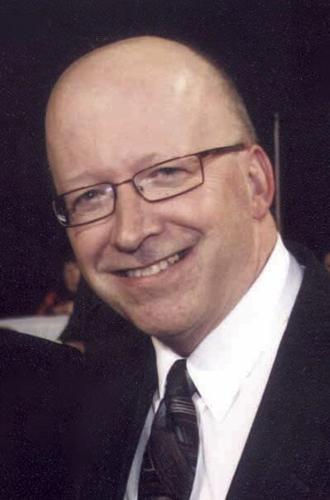I’ve never watched the film “Mr. Smith Goes To Washington,” starring Jimmy Stewart. I have seen brief clips of it, though, and know that Jefferson Smith, played by Stewart, is appointed to the U.S. Senate.
The film has a rather complicated plot, but one of the popular clips of the film shows Stewart, as Sen. Smith, launching a filibuster on the U.S. Senate floor.
This all came to mind when Sen. Cory Booker (D-New Jersey) last week broke the record for the longest filibuster in modern history, coming in at more than 25 hours. In a Washington Post report, Booker said he wanted to disrupt “the normal business of the United States Senate for as long as I am physically able” in protest of the actions of Donald Trump and Elon Musk, calling the times we are living in “a moral moment.”
Booker spoke for 25 hours and five minutes to achieve his record. He began speaking at 7 p.m. EDT on March 31 and concluded at 8:05 p.m. on April 1.
In preparation, Booker had not drunk water since the preceding day to avoid having to stop the speech to use the bathroom. He also fasted for days leading up to the speech. Afterward, Booker said that rather than needing to use the bathroom, he instead felt dehydrated.
While there were relatively few examples of the practice before the 1830s, the strategy of “talking a bill to death” was common enough by mid-century to gain the colorful label of filibuster, according to the U.S. Senate’s website. Derived from a Dutch word for “freebooter” and the Spanish “filibusteros” — to describe the pirates then raiding Caribbean islands — the term began appearing in American legislative debates in the 1850s.
Booker’s goal wasn’t to “talk a bill to death.” He railed for hours against cuts to Social Security offices led by Trump adviser Musk’s Department of Government Efficiency. He listed the impacts of Trump’s early orders and spoke to concerns that broader cuts to the social safety net could be coming, though Republican lawmakers say the program won’t be touched.
Booker also read what he said were letters from constituents. One writer was alarmed by the Republican president’s talk of annexing Greenland and Canada and a “looming constitutional crisis.”
Some of the most renowned filibuster speakers before Booker include:
• Wisconsin Sen. Robert La Follette, who used the filibuster to demand free speech during wartime;
• Sen. Huey P. Long, who in the 1930s effectively used the filibuster against bills that he thought favored the rich over the poor;
• Sen. Wayne Morse of Oregon, who famously used the filibuster to educate the public on issues he considered to be of national interest;
• South Carolina’s Sen. Strom Thurmond, who filibustered for 24 hours and 18 minutes against the Civil Rights Act of 1957.
I’ve learned this past week, thanks to Ryan Burdge’s recent entry in the Archives and Special Collections blog of the University of South Dakota, that there are different types of filibusters and, if you take all of them into account, our very own Sen. James Abourezk may be heralded for his efforts.
Abourezk succeeded in conducting a filibuster that lasted DAYS, not hours.
Burdge writes:
In the 1970s the United States faced an energy crisis on multiple fronts: The oil crisis of 1973, caused by a global oil embargo imposed by OAPEC, now OPEC, against countries that supported Israel in the Arab-Israeli War. Again, in 1979, when global oil production decreased due to the Iranian Revolution and subsequent Iran-Iraq War in 1980.
Energy and oil production policy was the focus of Congress during the 1970s, resulting in the establishment of the Strategic Petroleum Reserve in 1973 and the Department of Energy Organization Act of 1977. The goal of this regulatory restructuring was to make the nation less reliant on foreign oil and energy production, as well as maintain regulatory control over the price of energy for the U.S. public.
During these policy changes, there was a push by energy industry lobbyists to deregulate the domestic energy market. President Nixon’s Federal Power Commission appointees made deregulation their goal. President Carter promised to veto any new legislation that would deregulate the oil and natural gas industry in the United States, and by April 20, 1977, had submitted his energy policy proposals to the Senate for debate.
As deregulation of the natural gas industry was debated on the Senate floor, Sen. Abourezk and Sen. Howard Metzenbaum (D-Ohio) agreed to filibuster.
A less commonly used filibuster technique is to flood the Senate floor with new amendments and proposals to extend debate and delay voting.
On Sept. 19, 1977, Sens. Abourezk and Metzenbaum began proposing a slew of amendments to the Natural Gas Policy Act to force debate in the hope that they may win over the few votes needed to prevent deregulation before a final vote.
It came as a surprise when Senate Majority Leader Robert Byrd (D-West Virginia) and Vice President Walter Mondale, seemingly with the support of President Carter, conspired to end the filibuster. In the final hours of debate on Oct. 3, Sen. Byrd called up the latest round of amendments proposed by Sen. Abourezk, and as quickly as they were called, Vice President Mondale called the amendments out of order effectively forcing an end to the 13-day filibuster.
The final vote in the Senate came in at 50-46 in favor of deregulation.











(0) comments
Welcome to the discussion.
Log In
Keep it Clean. Please avoid obscene, vulgar, lewd, racist or sexually-oriented language.
PLEASE TURN OFF YOUR CAPS LOCK.
Don't Threaten. Threats of harming another person will not be tolerated.
Be Truthful. Don't knowingly lie about anyone or anything.
Be Nice. No racism, sexism or any sort of -ism that is degrading to another person.
Be Proactive. Use the 'Report' link on each comment to let us know of abusive posts.
Share with Us. We'd love to hear eyewitness accounts, the history behind an article.